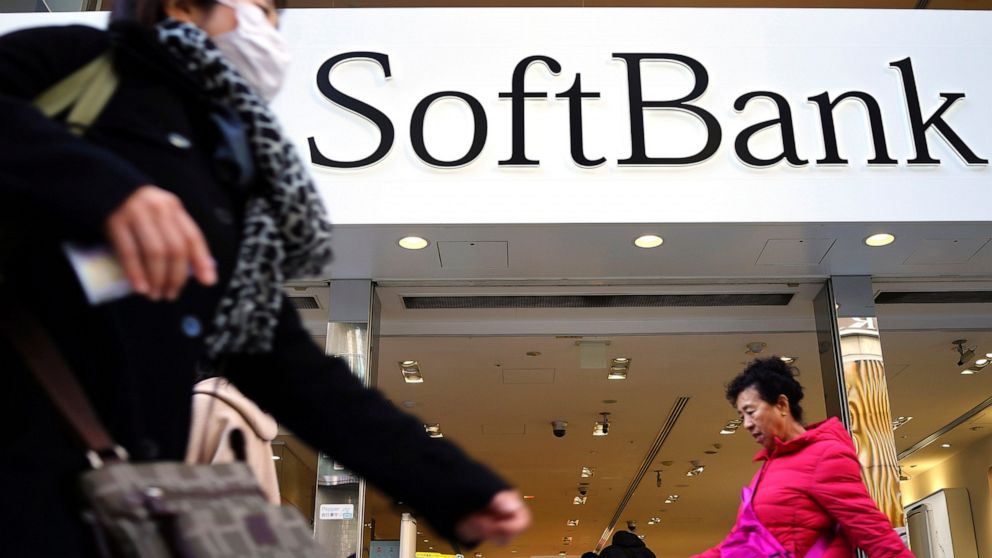Japan’s SoftBank sinks into losses over China investments
SoftBank Group says it sank into red ink for the July-September period, hit by losses on its investments in China
TOKYO — SoftBank Group Corp. sank into red ink for the July-September period, dragged down by losses on its investments in China, the Japanese technology conglomerate said Monday.
SoftBank reported a 397.9 billion yen ($3.5 billion) loss for the fiscal second quarter, compared to a 627 billion yen profit recorded the same period the previous year.
Quarterly sales grew 11% to 1.5 trillion yen ($13 billion).
Tokyo- based SoftBank said its investment portfolio called Vision Fund suffered losses, including the value of its stake in South Korean online retailer Coupang.
But it said it booked gains on its shares in DoorDash, an online food-ordering service based in San Francisco.
SoftBank said the recent crackdown in China on the technology sector weighed on Chinese share prices.
SoftBank’s Vision Fund was hit by a 1 trillion yen ($9 billion) loss in the July-September quarter, according to its chief executive, Masayoshi Son.
Son, who founded the company, acknowledged the latest losses were a big contrast to the booming results it reported for the previous fiscal year.
“We have headed straight into a blizzard in the middle of the winter,” Son told reporters, adding he won’t make excuses.
He said one big factor was a sharp drop in the share price of Chinese e-commerce company Alibaba, in which SoftBank is a shareholder.
But he stressed SoftBank’s main business was shifting to the Vision Fund and becoming less dependent on Alibaba’s performance. However, Vision Fund’s Chinese investments also suffered.
Son said Vision Fund’s investments overall were gaining value. Its portfolio has been constantly changing. It once owned U.S. mobile company Sprint, but Sprint has merged with T-Mobile, in which SoftBank remains an investor.
SoftBank has a Japanese mobile carrier under its wing that was the first to offer the iPhone in the Japanese market.
It also has invested in U.S. office-sharing venture WeWork, a move that critics said was a mistake, but Son said its performance was recovering.
Investments in U.S. chip company Arm and ride-hailing service Uber are examples that are faring relatively well.
“I feel that Vision Fund is producing results,” said Son.
He said he still saw promise, showing video of a tiny green seedling sprouting in the snow.
“While some of the eggs our goose has laid just died, the other golden eggs are shining in splendor,” he said.
———
Yuri Kageyama is on Twitter https://twitter.com/yurikageyama
![]()


